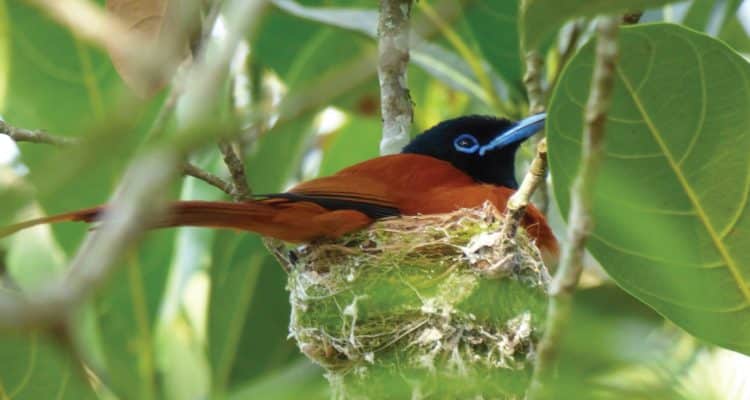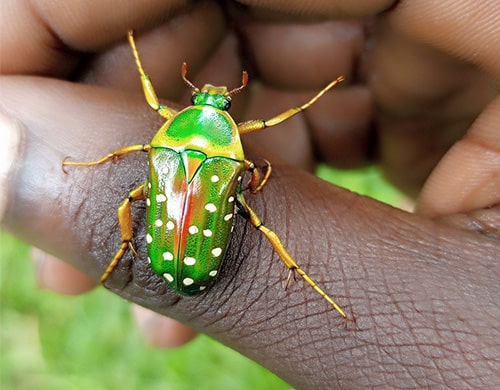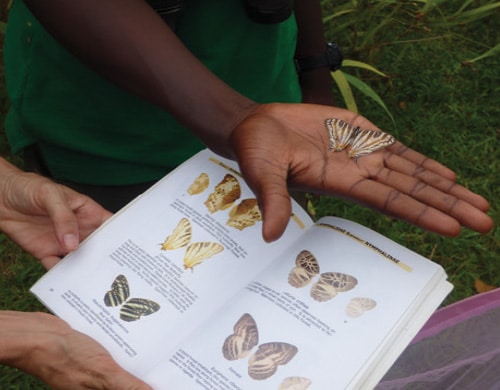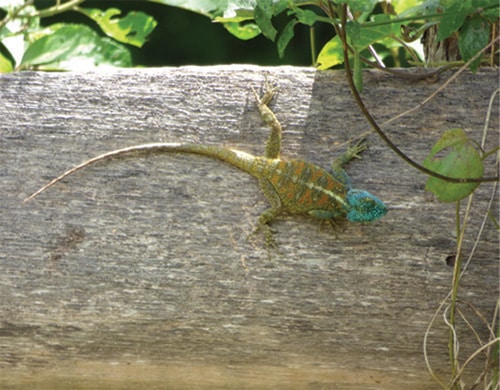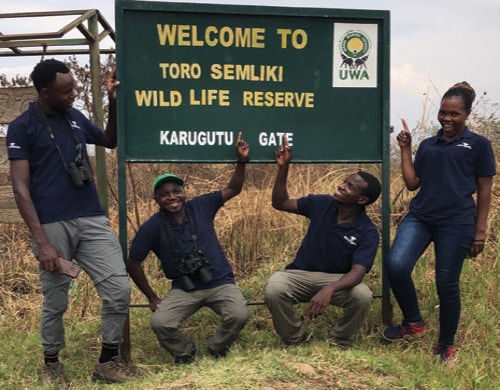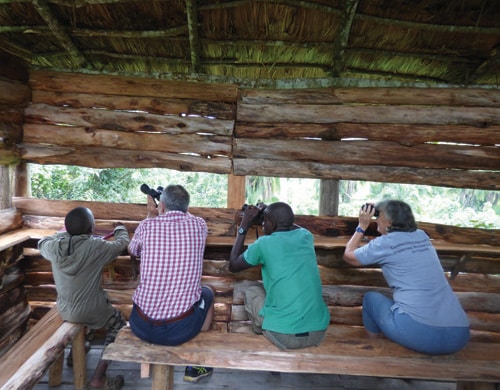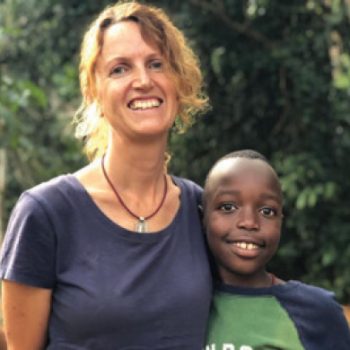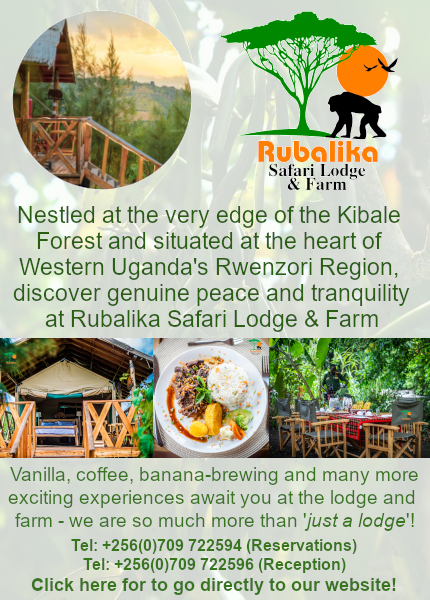The Sunbird Hill Experience
Visitors love the secluded Kibale Forest edge location. (It is no accident that Sunbird Hill has developed with an air of mystery around it). It is open exclusively to pre-booked visitors, and those that are in awe of nature. Every nature walk is different and customised to guests’ particular interests.
‘Explore and discover’ walks are highly interactive as we question, examine – and sometimes pick up – all the interesting ephemera we find along the way: a butterfly wing, the remnants of an eggshell, a discarded nest, the footprints of an antelope, a dead insect and (occasionally) a snakeskin. Sunbird Hill site guides are a fun, enthusiastic group of home-grown nature lovers who share their in-depth knowledge with guests to bring the forest edge alive. Anything that can’t be identified is photographed and studied at the extensive reference library at the Birders’ Lounge, a relaxing area for armchair birding and photography.
More than 270 bird species have been recorded at Sunbird Hill over the last 10 years. The name pays homage to the site’s 15 sunbird species (thank you Malcolm Wilson!) Top ticks include the spectacular Black bee-eater, White-spotted flufftail, Lemon dove, White-collared oliveback, Green-breasted Pitta, Rufous-crowned eremomela, Masked Apalis, Green-backed twinspot and Bamboo warbler. Professional photographer Adam Scott Kennedy poured us all a celebratory dram of his special whiskey when he photographed the Lead-coloured flycatcher for his new book (a comprehensive photographic guide to the birds of East Africa, for Princeton University Press).
National and international experts who visit Sunbird Hill on a regular basis include ornithologists, lepidopterists, herpetologists, botanists and primatologists. Bird ringing (or banding) occurs periodically throughout the year.
During the past few years, these local, national and international nature experts have dedicated their spare time to investigating their specialist subject at Sunbird Hill. There is only one prerequisite: that they share their knowledge with the Sunbird Hill Team. Here, curious and enquiring young guides and researchers investigate every aspect of nature, supported by specialist training programmes and Sunbird Hill’s reference library to become the best site guides in the region.

